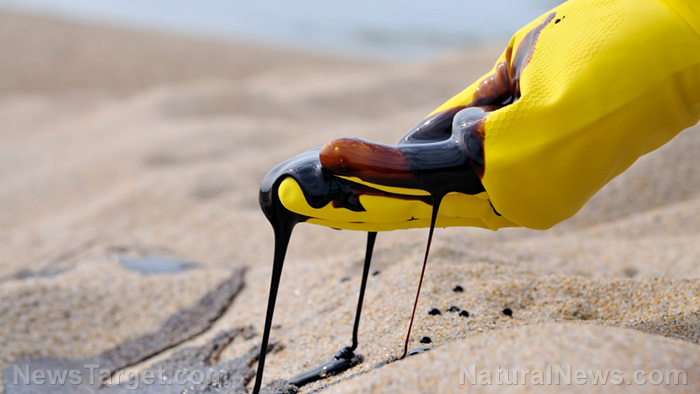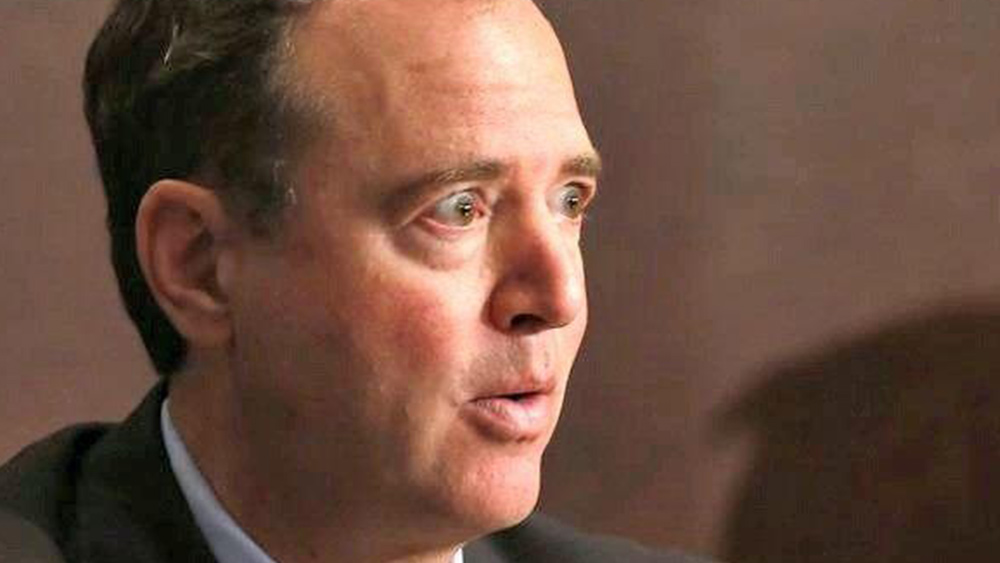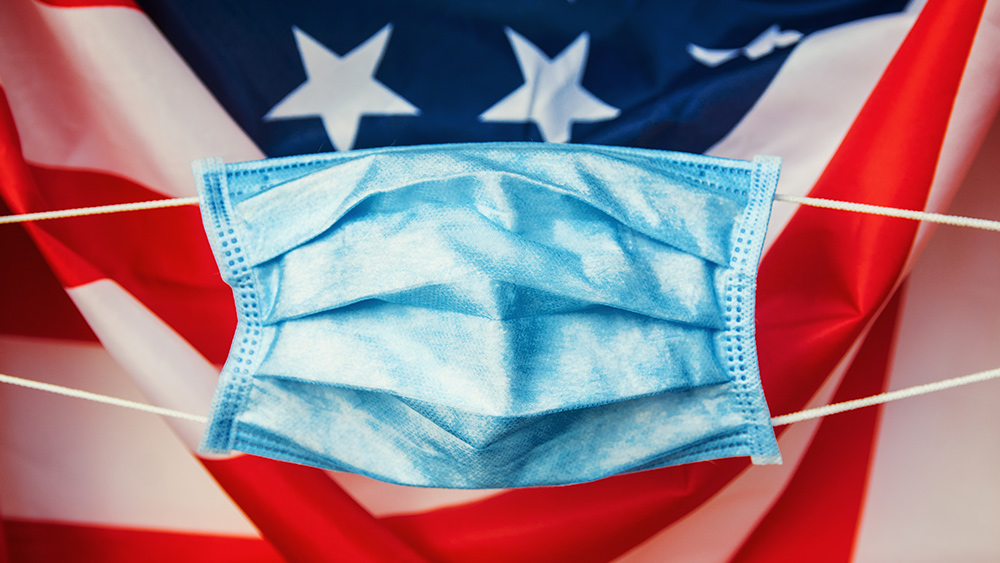Oil companies that spilled 10.8 million gallons of oil in the Gulf of Mexico reimbursed by the government instead of being held accountable
03/09/2021 / By Cassie B.

Much of the news coverage surrounding Hurricane Katrina, which struck New Orleans in August 2005, focused on the flooding and damage to homes caused by the storm. One aspect that didn’t get as much attention were the resulting oil spills.
More than a week after the storm, crude oil was still leaking from damaged drilling rigs, toppled storage tanks and broken pipelines from New Orleans down to the mouth of the Mississippi River. Shortly after that, Hurricane Rita made matters worse by pushing the oil let loose by Katrina further inland and inflicting further damage on oil tankers.
According to the U.S. Coast Guard, who serves as the first responder for oil spills, 540 separate reports of spills came in during this time for Louisiana waters. More than 400 pipelines and 100 drilling platforms sustained damage. All told, officials estimate that the leaks released roughly the same amount of oil as the infamous 1989 Exxon Valdez disaster, which saw 10.8 million gallons of oil spilled into Prince William Sound in Alaska.
That disaster prompted the Oil Pollution Act, which required state and federal agencies to work with companies who spill oil to assess the damage to natural resources and pay for efforts to restore it.
The Katrina-related oil spills happened more than 15 years ago, and we still haven’t seen an assessment of the damage, nor have any of the 140 parties believed to be responsible for spills been hit with any types of fines or citations related to environmental violations. There have been no restoration plans drafted for the water, ecosystems, birds and fish that were impacted, and experts worry we may never know the full extent of the damage caused to the environment.
However, there is no doubt that it is significant. After all, even small spills can have big impacts, with oil that seeps into marsh mud affecting snails and worms and the birds who eat them, not to mention the fish in these waters and the humans who consume the fish. Marsh plants start dying, saltwater pushes them over, and the coastline recedes further; future storms then come along and compound the issue.
Not only has no one had to pay for this damage, but the oil companies who caused the spills have actually been reimbursed by a federal trust fund to the tune of $19 million. The fund allows private parties to make claims for expenses they incurred while clearing their oil spills. The companies involved only need to file papers detailing how much oil was spilled, why the spill occurred, and how they tried to capture it. Many have described the spill as caused by an “unforeseeable act of God.”
Restoring the environment will be difficult without funding
This failure to hold companies financially accountable for the spills is preventing important remediation work from being carried out. According to NOLA.com, if the companies behind these spills paid at the same rate BP paid for the oil it spilled in the Gulf of Mexico in 2010, Louisiana could see its restoration budget rise by more than $700 million.
A lawyer for the Louisiana Oil Spill Coordinator’s Office, Stephanie Morris, said that fining responsible parties can be difficult.
“The [oil companies] always fight with us,” she said. “Their position with us is always: ‘Louisiana has a lot of spills. You have a degrading coast. Are you trying to say these injuries are from my little spill?’”
Adam Babich, a former director of the Tulane Environmental Law Clinic, said that although the act of God defense is not normally enough to free oil companies from liability, it weakens arguments for holding them accountable.
It is outrageous that oil companies spilled 10.8 million gallons of oil into the Gulf of Mexico and instead of paying to help the environment get back on track, they were actually rewarded financially for polluting the water.
Sources for this article include:
Tagged Under: absurd, accountability, big government, disaster, Ecology, environment, Gulf of Mexico, Hurricane Katrina, ocean health, oil, oil companies, oil spills
RECENT NEWS & ARTICLES
COPYRIGHT © 2017 BIG GOVERNMENT NEWS





















